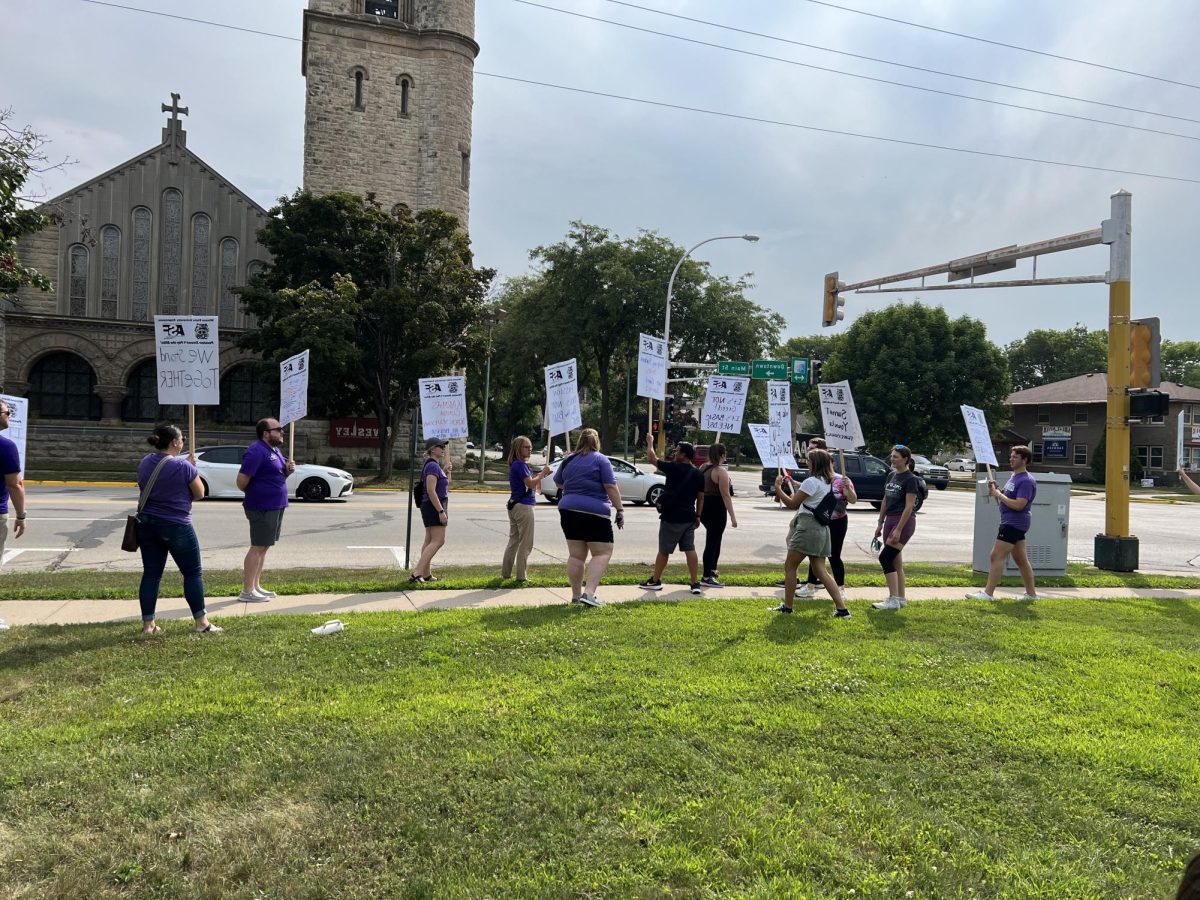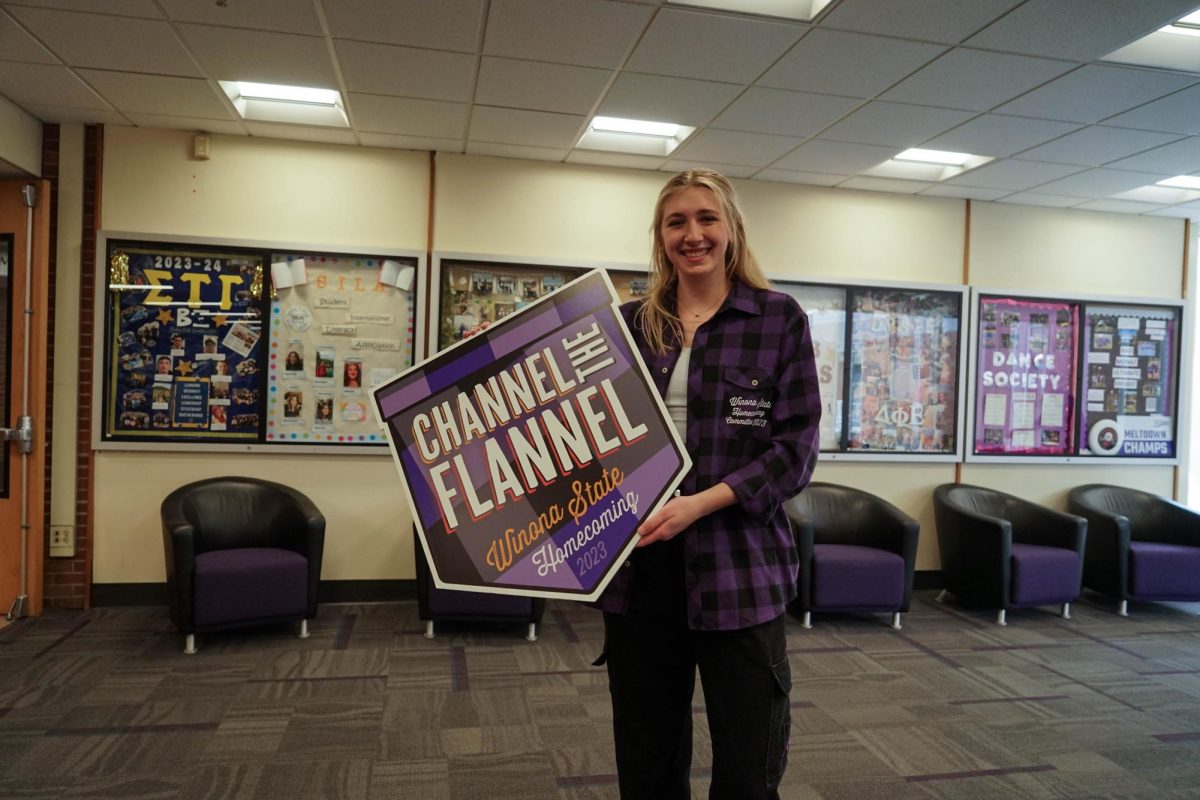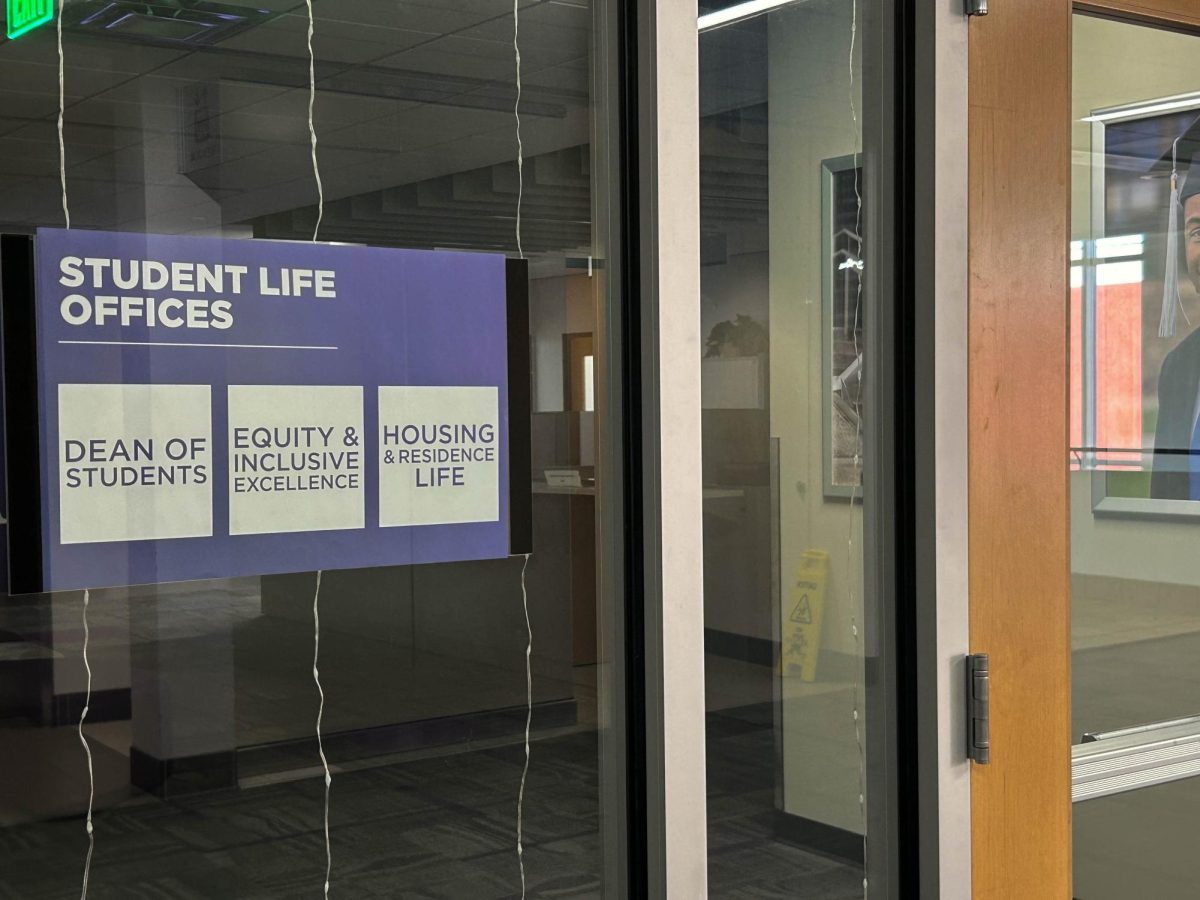The Minnesota State University Administrative and Service Faculty (MSUAASF) have made their message clear – they need more.
After battling through a decade of harsh living wages, inflation, and economic struggles, about 775 employees across the seven universities of Minnesota State have recently expressed their struggles, concerns and wishes in terms of wages.
These employees’ responsibilities include student access and engagement functions in various areas including admissions, advising, financial aid, athletic trainers, academic support, alumni engagement and more. After a few mediations and negotiations, they officially released their plan to strike if an agreement on their wages is not met.
Tracy Rahim, the Associate Director of Student Activities at Winona State University (WSU), and a State MSUAASF Grievance Officer, spoke on what a strike might look like for the students and campus.
“We would be setting up pickets along the perimeter of campus,” Rahim said. “Us not being in our positions needs to have an impact in order for them to realize the value that we bring to campus.”
Stacey Czaplewski, the Associate Athletic Director for Athletic Training mentioned the effects that a potential strike would have on her, her staff members and the athletes.
“We wouldn’t be here,” Czaplewski said. “Without any supervision from any certified athletic trainers, they [athletes] wouldn’t be allowed to train, and home games wouldn’t be allowed.”
Rahim expressed the primary goal of ASF members and what they need to survive.
“An inflationary increase, or what we call, ‘A cost of living increase,’” Rahim said. “We need to get that to a greater degree than what we have gotten before. In our salary ranges, we have 20 steps. We do not advance to those steps unless we negotiate them.”
Rahim also mentioned they wanted all their members to start at a minimum of $52,000, which is only about $25/hour.
“Many of us are required to have master’s degrees for our positions, some of us just have them, many of our employees have doctorate’s…” Rahim said, “…to have that advanced knowledge that we bring to our position and not even being paid that [$52,000] is not good.”
Czaplewski noticed similar challenges in her department and even talked about how with the rise of inflation and societal economic hardships, these salaries are embarrassing.
“If a position opens in our area, and I were to hire someone, when you look at the salary, you say, ‘Hey we want to bring you on here at Winona State, here’s your salary, I’m sorry,’” Czaplewski said. “It is very disheartening to offer up those salaries to people that have higher-level degrees. It is embarrassing.”
But the problem did not just arise this past year, it is something that has grown tremendously over the past decade.
“When I first started, I was a hall director, so I lived on campus,” Rahim said. “I did not have mortgage to pay and those types of things. As I shifted around at the university, and personal budgeting comes into effect, but it has really been within the last 10 years with inflationary increases that our rate of pay has not been keeping up.”
After months of conducting research and surveying employees from across the seven universities in the Minnesota State system, they discovered something shocking – they have not been fighting alone.
The survey revealed that 57.57% of members are living paycheck to paycheck. More than two out of three members had to dip into savings to pay for food, housing, or childcare. 82.28% have made personal sacrifices to pay for basic needs. 76.92% have considered leaving their position for better wages. 29.54% have been forced to pay a bill late due to insufficient funds.
Tyler Treptow-Bowman, an Intercultural and Completion Coordinator in the Equity and Inclusive Excellence department, mentioned that these unfortunate wages are making it difficult to find new employees to fill certain positions.
“How are we going to remain competitive in this job market, how are we going to get the best employees at Winona State and how are we going to get applicants?” Bowman questioned. “You are going to put a position out these days and you are going to get maybe three qualified applicants.”
Bowman, Rahim and Czaplewski have all had personal hardships they had to battle through to make ends meet in their own lives.
“I took a job about eight years ago and went back to it not long ago because it was difficult to keep those ends met and feel like I’ve got a cushion if I had an emergency at my house, which recently, I did,” Rahim said.
Bowman was released from two jobs right after he finished graduate school, and he claimed that those releases motivated him to join the union.
“In one of those situations, I lost my house because I was a hall director and I didn’t have a place to live, and the other situation, we were barely making ends meet paying for an apartment in the Twin Cities,” Bowman said. “So, I understand the economic need for fair salaries, fair wages, equitable contract and job protection.”
Czaplewski found herself in a comparable situation in which she needed to pick up another job to get her through the winter.
“We live paycheck to paycheck, and we make sacrifices,” Czaplewski said. “I have a second job in the winter just to help pay, maybe, the car insurance, or something of that nature.”
Something that Rahim finds most difficult about their situation is that employees in their same positions at two-year universities are receiving higher wages than those at four-year universities.
“The work that we’re doing on the universities that’s being done at the two-year campuses, their compensation is a lot higher than we are,” Rahim said.
Bowman agreed with this and explained why new employees are turning away from our campuses.
“We’ve lost a handful of employees that go to Minnesota State College Southeast,” Bowman said. “It’s because they can get valued for their years of experience at a much higher wage.”
Bowman also wanted to mention the importance of ASF members on campus every day.
“One of the most impactful signs I saw that someone made was ‘We are the first touchpoint for students on campus’,” Bowman said. “The first people you encounter when stepping onto campus are ASF employees, and so if students don’t have them, it will be very different.”
Czaplewski further noted that joining a union like ASF is sometimes the only way to be heard.
“You’re not going to get a raise, you’re not going to get better benefits if you’re not part of a union in this type of state system,” Czaplewski said. To be a member of this union is extremely important for us, and I thank all the members who have fought so hard for us.”
Rahim summed up the needs and goals for ASF members through this entire process.
“We’re looking for equitable and fair pay increases to ensure that our members can live a more comfortable lifestyle that doesn’t require them to have second jobs or require them to be on social assistance.”
A 15-hour mediation took place Monday, August 14 and the ASF members received a “Last Best and Final Offer.”
The Negotiations Team and State Board both voted to recommend members to ratify (vote yes) the last and best final offer, and ballots will be emailed on August 31 and will be due September 7th. If membership votes YES, the settlement will be retroactive to July 1, 2023. If membership votes NO, either membership will go on strike or best and final offer will be put into motion.

































































